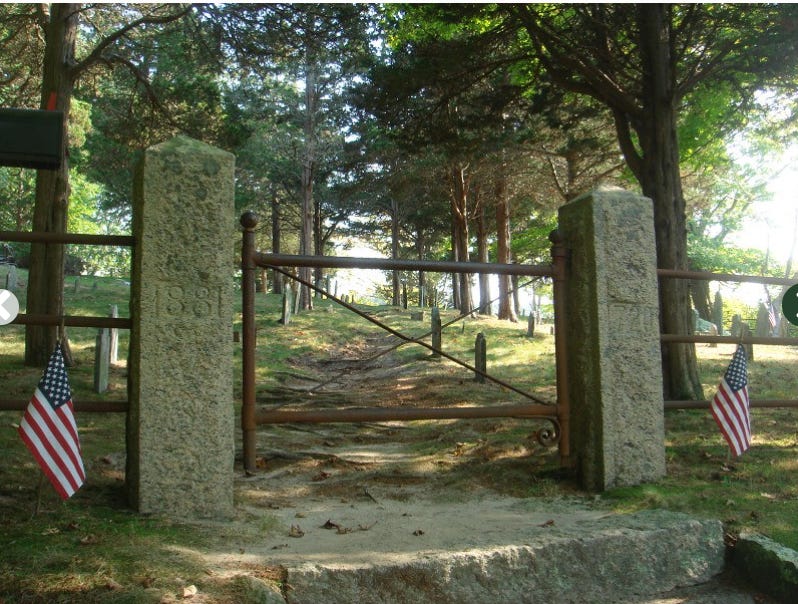 By Independent News Roundup
By Independent News Roundup
In the summer of 2021, I visited an old friend on Cape Cod and took the opportunity to pay my respects to my mother’s ancestors at the Ancient Sears Cemetery in West Brewster, Barnstable, Massachusetts. My mother is a direct descendent of Richard Sears, who was born around 1595, and settled in Plymouth Colony in 1638.

Though Richard Sears was a dedicated puritan who identified strongly with the faith of the original Plymouth congregation, his descendants in the 18th century came to embrace the enlightenment ideals of the Founding Fathers—that is, freedom of conscience and speech, limited government, and the primacy of the free individual to pursue his interests, unfettered by state power.
The Sears family genealogical catalogue—authored by Samuel Pearce May and amended by Ray L. Sears—that I reviewed at the New England Historic Genealogical Society ended with my grandfather’s generation. My grandfather’s name and 1942 Yale University yearbook photograph were featured, but as he’d not yet fathered his children, my mother was not in the catalogue.
Samuel May offered this flattering summation of my mother’s ancestors:
[Richard’s] descendants showed good breeding, and many of them were prominent in church and town affairs, and in the militia. Their names may be found in the records of the Indian and French wars, the Revolutionary war, and that of 1812. Numbers served during the late Civil war, and shed their blood freely for their country. The family has always been very religious in its tendency, in latter years leaning to the Methodist and Baptist persuasions, and rather given to ‘-isms’; some of its members have been foremost in the temperance and anti-slavery movements, but it has never given rise to any prominent politicians, and while holding many local offices, not aspiring beyond the State Legislature. Of good stature, and comely appearance, they are healthy and long-lived, enterprising and esteemed citizens wherever found.
‘Worth is better than Wealth, Goodness greater than Nobility, Excellence brighter than Distinction’
- Sears Monument.
In July 2021, many residents of Cape Cod were still in the grip of COVID-19 hysteria, and my old friend advised me to lie about my unvaccinated status to avoid causing fear and consternation in his social circle and at his Catboat sailing club.
Thus, when I visited the Sears cemetery, I wondered if the nation they’d help to build was in danger of losing its founding ideas and ideals.
I also noticed something else—namely, that apart from a vague and perhaps vain feeling of pride in my family heritage, I still did not identify with anything resembling a clan, tribe, or religious sect. My values have always been the Enlightenment values of our Founding Fathers.
Now I wonder if this Enlightenment idea of America is incongruous with man’s tribal nature. For at least the last twenty years, higher education administrators, public policymakers, and media pundits have increasingly championed group identities such as race, gender, and sexual preference.
Rarely if ever do we hear celebrations or even articulations of our identity and shared purpose as Americans.
Insofar as any politician ever attempts to define who we are, his definition is invariably predicated on who we are against—that is, a foreign adversary such as Islamic terrorists, China, or Russia (especially Russia).
And so, I wonder:
Please let me know what you think in the comments.
